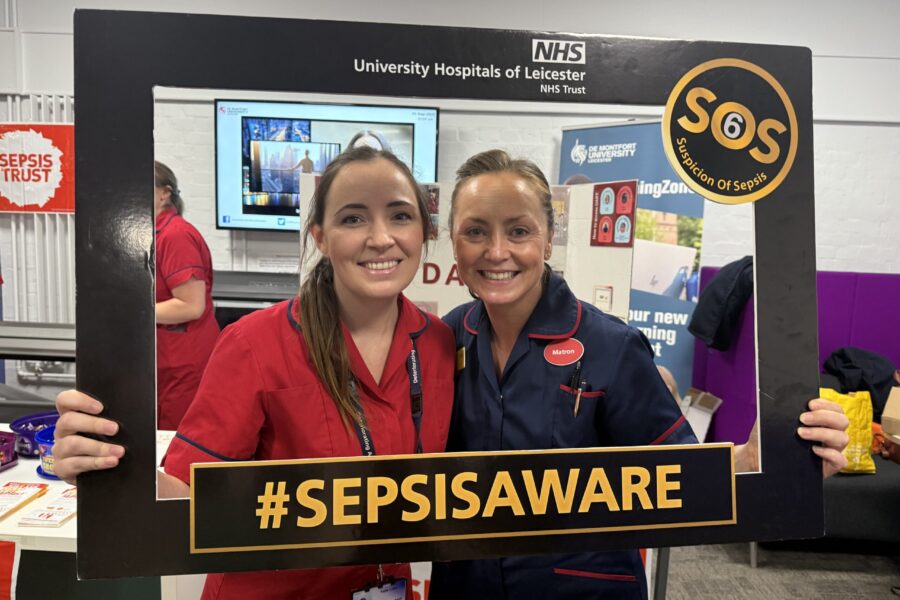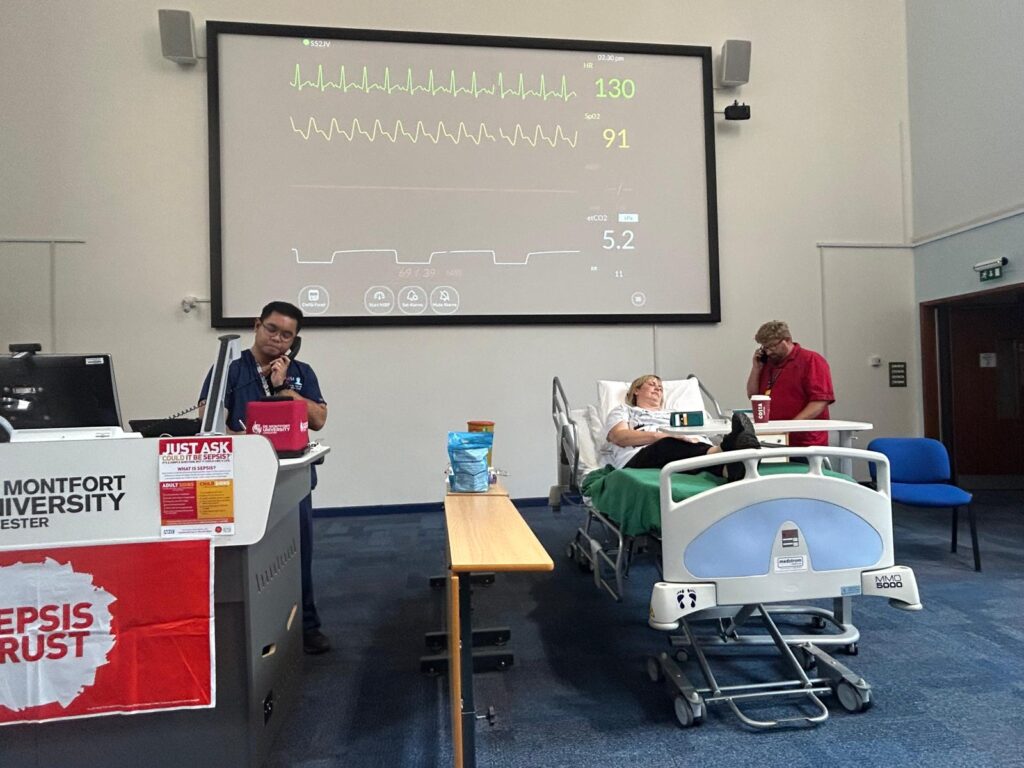
More than 250 health professionals and students attended a sepsis awareness conference on Monday 1 September to kick off Sepsis Awareness Month.
The conference, which was jointly hosted by the University Hospitals of Leicester NHS Trust (UHL) and De Montfort University (DMU), was organised by the Deteriorating Adult Response Team (DART) at UHL to raise awareness of early intervention and the importance of understanding sepsis-related illnesses.
Sepsis is a life-threatening condition that arises when the body’s response to an infection causes the immune system to go into overdrive. It can lead to shock, multiple organ failure and death if not treated promptly.

The event was organised by DART Nurse, Katie Luker, who has devoted her career to improving awareness of sepsis after contracting the illness in 2015.
She said: “I was being treated in London at the time, and delays in my care led to me becoming critically unwell with sepsis. Since my recovery, I trained to be a nurse at De Montfort University, and then got a job working in intensive care, all with the goal of becoming a DART nurse. I wanted to be able to help educate others on the importance of sepsis recognition and treatment, and whilst it can be a difficult story to share, it is important for all attendees to see the impact of sepsis, and I feel lucky I have the voice to share this.”
In the UK, there are around 260,000 cases of sepsis every year with an estimated 48,000 deaths. Of the survivors, 40 per cent suffer physical, cognitive or psychological aftereffects.
The event at DMU was a chance to raise awareness and included a presentation from Melissa Mead MBE who lost her one-year-old son, William, to sepsis in 2014. She spoke of the importance of listening to parents’ concerns and asking the right questions. There was also a presentation from Dr Ron Daniels BEM, the CEO of The UK Sepsis Trust, UHL Microbiology Consultant Felicia Lim, Lead Sepsis Nurse at UHL Sarah Odams and an interactive sepsis simulation exercise.

Across UHL, the DART team support wards and the emergency department by responding to unwell patients across all sites. The nurses provide rapid assessment and intervention for patients showing signs of the illness as well providing education to staff across the Trust.
DART Matron, Carrie Hayhurst, added: “Our team respond to alerts and provide intervention, support and advice to teams across the Trust. Events like this are vital for raising awareness and it is important to include the lived experiences of people who can show the consequences and explain why it is important that we always think about sepsis.”